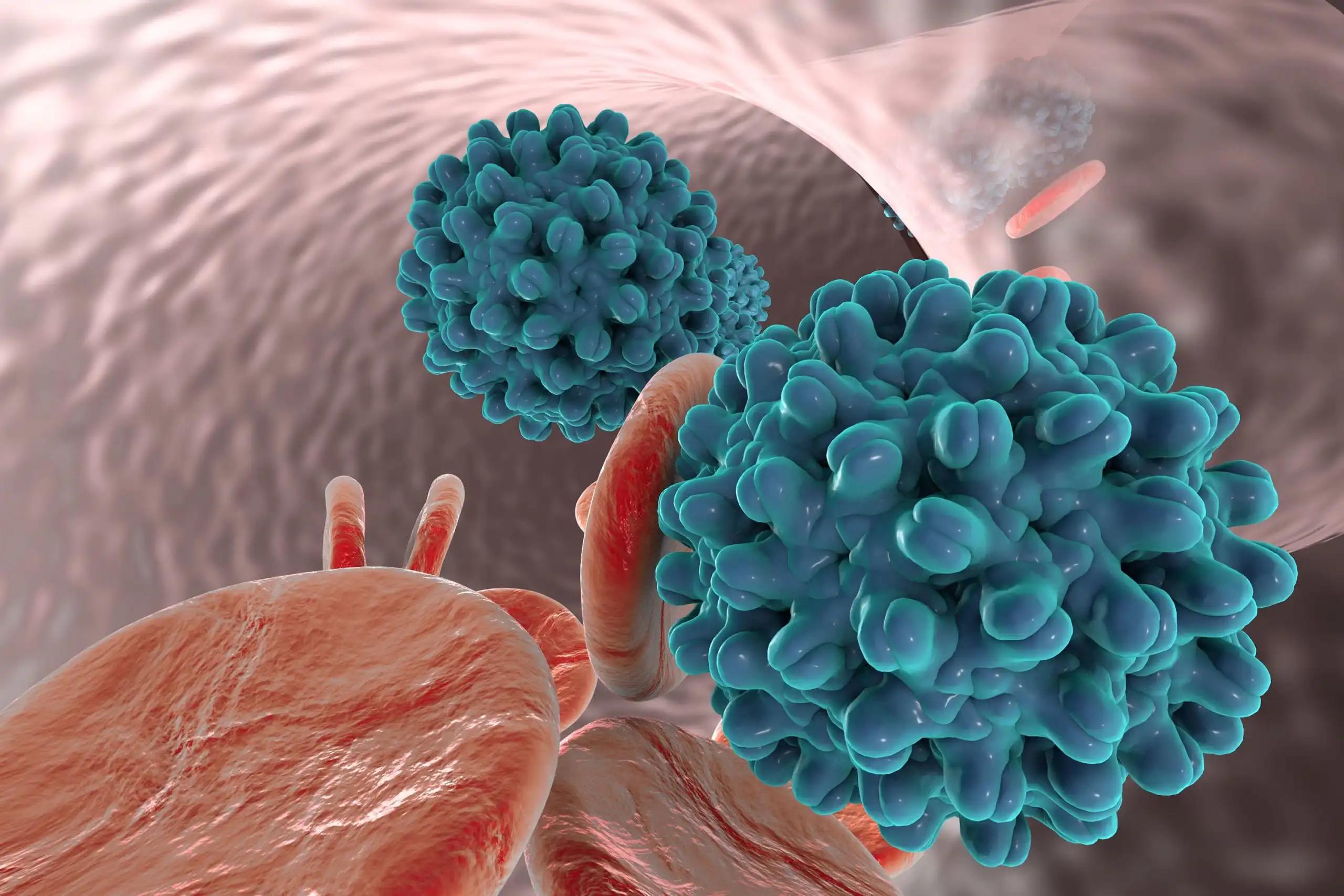KEY TAKEAWAYS
- The ALINA phase III determined the efficacy and safety of adjuvant alectinib over CT in completely resected ALK+ NSCLC pts.
- The study’s primary endpoints were investigator-assessed DFS, tested hierarchically in stage II–IIIA and then in the ITT population (stage IB–IIIA). Secondary endpoints were CNS-DFS, OS, and safety.
- The study showed that alectinib was the first ALK inhibitor to improve DFS over CT.
In patients (pts) with surgically removed stage IB–IIIA ALK-positive non-small cell lung cancer (NSCLC), the standard post-surgical treatment has been platinum-based chemotherapy (CT), known for providing moderate survival benefits. However, for advanced cases of ALK-positive NSCLC, alectinib is generally recommended as an initial treatment.
Researchers presented prespecified interim findings from ALINA, a Phase III study assessing the efficacy and safety of adjuvant alectinib compared to CT for pts with completely resected ALK+ NSCLC.
To be eligible for the study, pts had to be at least 18 years old, exhibit an ECOG PS of 0/1, and have completely resected, stage IB (≥4 cm)–IIIA ALK+ NSCLC. Participants were equally divided to either receive oral alectinib (600 mg twice daily) or IV platinum-based CT for up to four 21-day cycles. The division was balanced based on the disease stage and race.
Treatment with alectinib continued for a maximum of 24 months or until disease relapse, intolerable side effects, or consent withdrawal. The study primarily focused on investigator-assessed disease-free survival (DFS) first in stage II–IIIA pts and then in the intention-to-treat (ITT) population. Other endpoints like CNS-DFS, overall survival (OS), and safety were also considered.
A total of 257 pts were allocated to either the alectinib group (n=130) or the CT group (n=127). Baseline characteristics showed no significant imbalances between the two groups. As of June 26, 2023, the median follow-up period was 27.8 months. Alectinib demonstrated a notable advantage in DFS over CT in both stage II–IIIA (HR 0.24; 95% CI: 0.13–0.45) and ITT populations (HR 0.24; 95% CI: 0.13–0.43). Additionally, a meaningful CNS-DFS benefit was observed in the ITT group (HR 0.22; 95% CI 0.08–0.58). OS data are still pending, and no unexpected safety findings have been reported.
The study showed that alectinib is the first ALK inhibitor to considerably improve DFS when compared to CT, thereby offering a promising new therapeutic approach for pts with resected ALK-positive NSCLC.
Source: https://cslide.ctimeetingtech.com/esmo2023/attendee/confcal/show/session/65
Clinical Trial: https://classic.clinicaltrials.gov/ct2/show/NCT03456076
Solomon, B.J. ALINA: efficacy and safety of adjuvant alectinib versus chemotherapy in patients with early-stage ALK+ non-small cell lung cancer (NSCLC).



